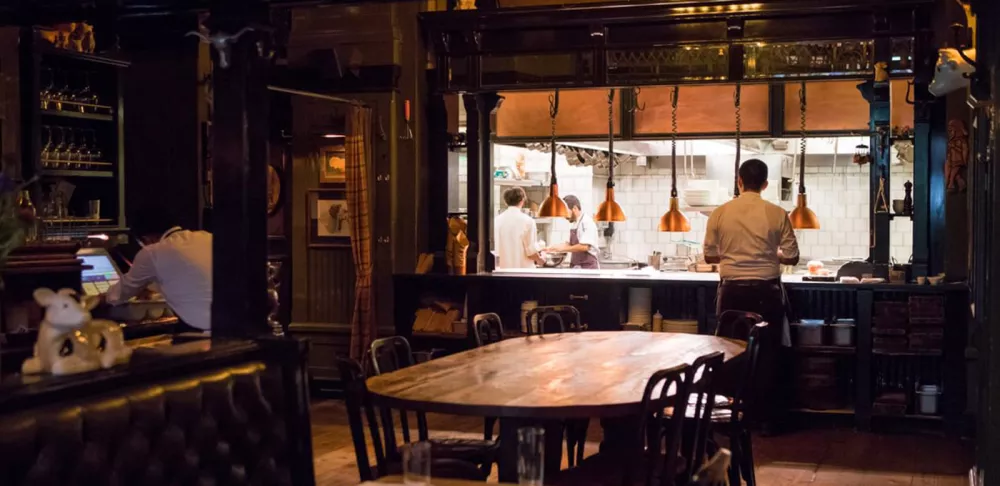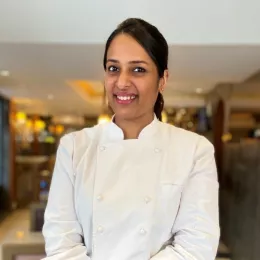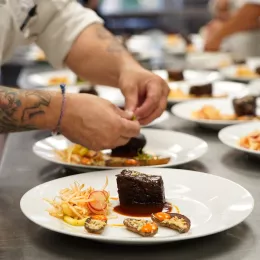In the 12 years I worked as Director of Admissions at ICE, I met with hundreds of people taking the first step to turn their passion for food into a profession, and one of the things that came up time and time again was whether they could really manage a full-time career in hospitality — especially if they didn’t necessarily want to work the line in a restaurant. The answer to each of them was “have you heard about our management program?”
My goal every time I met with a prospective student was to help them create a strategy that would get them to their end goal — this could be a specific job they have dreamed of forever, or it could be just a general idea of how they wanted to feel about going to work each day. Many times, part of this process was to expose them to career paths within the culinary and hospitality industry they had never even considered. One of the constants in these planning sessions was my deep and abiding belief that wherever they came from and wherever they wanted to go, they would benefit deeply from our Restaurant & Culinary Management program. I spent so much time talking passionately about how I thought it was the most interesting, big-picture beneficial program, that the Dean (and architect) of the Restaurant and Culinary Management program, suggested I take it myself.
With no long-term plans to open a food business, I fell into the “why would I take it if I don’t want to open a restaurant” camp, but I’m so glad I did. (Never have I said the phrase “I never would have thought of that, but it makes so much sense” so many times in a seven-month period.) From a culinary education point of view, financial spreadsheets and alcohol permits may not be as sexy as a perfect flambé or gorgeously plated dessert, but they are deeply interesting when put within the context of the ins and outs of the food industry.
Related Read: How to Successfully Run Your Business
After completing the program and getting my diploma in Restaurant & Culinary Management, I'm even more convinced that this program is the absolute lynchpin between a “job” and a “career” in the culinary world. So much, so, that I will be doing a series of blog posts of some of the most interesting and useful tips I learned in the RCMD program. I hope to inspire you to reflect on why an understanding of the financial and operational aspect of any food career is the key ingredient to long term success.
The average person often assumes that the key to a successful culinary business is great food. The management program starts with the assumption that your food is already good; the goal of this six- to eight-month, 316-hour program is to teach you the business skills to bring your food business to life and generate the sales.
Food and beverage sales are unique in that we take raw components that can (and will) go bad, create the product from scratch, serve it directly to our customers with no middle-man and collect payment after the product has already been used in full. It’s this combination of things that makes the hospitality industry so different from many. Accidentally order 1,000 paper clips instead of a 100? So long as you have somewhere to store them they will just hang out until you need them. Order 1,000 lemons instead of 100? You have a much bigger problem on your hands with limited solutions. Combine that with the fact that the average profit margin for a restaurant is approximately 6% and a simple typo could lead to catastrophe.
In the following series of blog posts I’ll be touching on some of the more memorable topics and anecdotes — think menu design theory and alcohol liability — that kept me constantly amazed and engaged throughout my time as a RCMD student. I hope you learn a little something, and draw some inspiration of your own.






